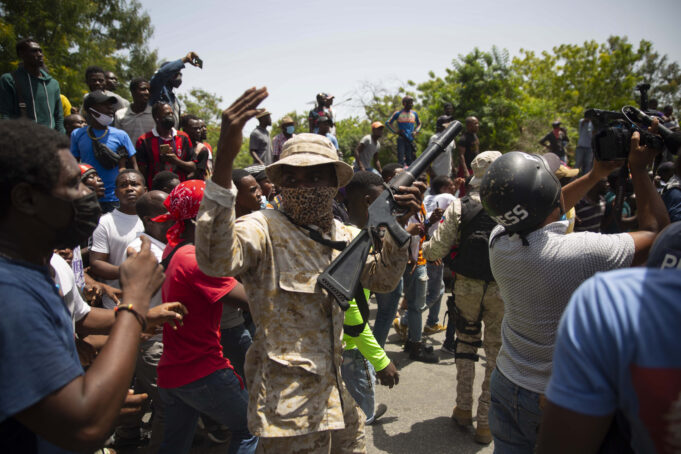Naba’a Muhammad, J.S. Adams and Brian E. Muhammad
MIAMI—The assassination of Haitian President Jovenel Moïse sent shockwaves through South Florida’s Haitian community.
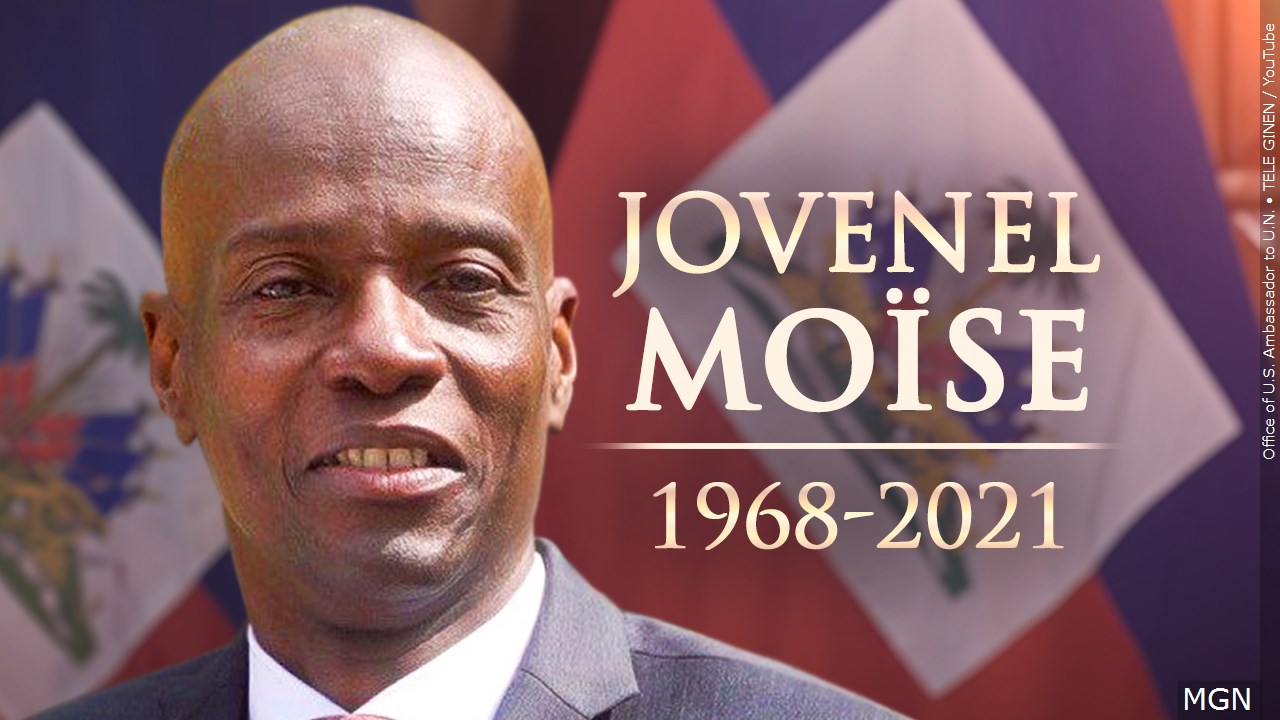
Marleine Bastien, executive director of Family Action Network Movement in Miami, an advocacy organization for Miami’s underprivileged neighborhoods, says she first heard the news before going on her morning walk to work. Both her cell phone and her home phone began to ring, which she said is usually a bad sign. She said when she was told the news, it shocked her beyond belief.
“I am saddened by the fact that a sitting president can be assassinated in his own home,” Ms. Bastien said. “That proves what we’ve been saying for months, that the high level of insecurity was untenable and something had to be done about it.”
Many Haitians in South Florida are in a state of confusion. As the investigation continues into who could have done this and why, Ms. Bastien wants to see her people remain calm.
“What I’d like to see happen is that the people remain calm and that somewhat of a consensus is reached to develop a strategy to bring peace and stability,” she said. “Before we can talk about anything else about elections, we need to bring safety and security to the population because the people, they’ve been suffering for months now.”
“I don’t know who killed Jovenel Moïse, but I know the U.S. is not a neutral party,” said outspoken Haitian lawyer and activist Ezili Danto of the Free Haiti Movement. She said she has survived six assassinations attempts over three decades of work for her people. The same day as her online live stream, news broke of Haiti’s interim prime minister calling for the Biden administration to send troops to Haiti “to protect key infrastructure as it tries to stabilize the country and prepare for elections in the aftermath of President Jovenel Moïse’s assassination, the Associated Press reported. At Final Call presstime whether the U.S. would send in troops was unclear.
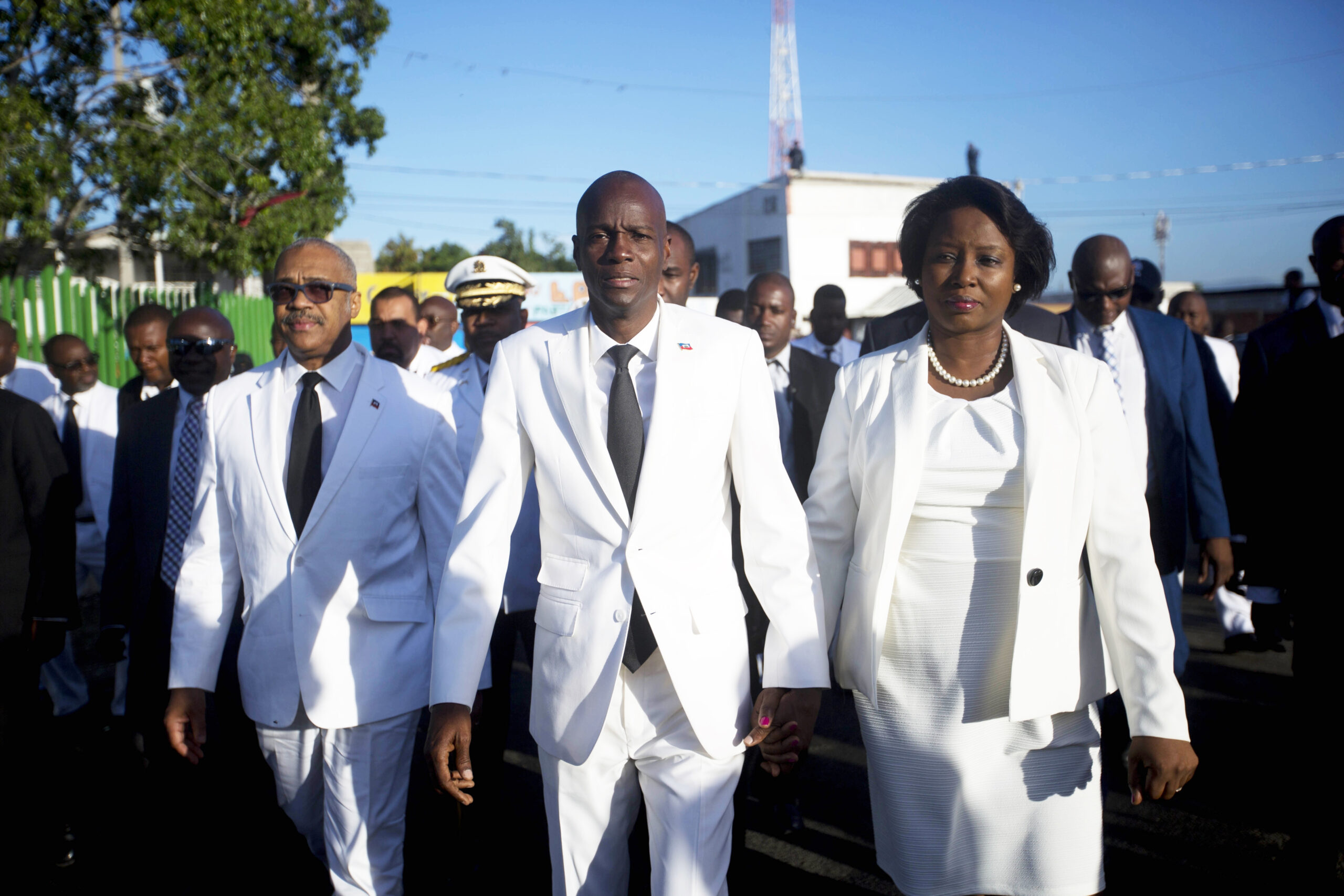
But a bombshell about possible U.S. involvement was dropped July 12 with the arrest of a Haitian businessman from Florida, allegedly in connection with the murder. Haitian authorities announced the arrest of Christian Emmanuel Sanon, 62, who previously expressed a desire to lead Haiti, and was referred to a as Christian pastor.
According to the Associated Press, a close friend said Mr. Sanon, who had hired Colombians as security for a trip back to Haiti, may have been duped into joining the plot. Colombian ex-soldiers have been arrested and charged with killing President Moïse in his home July 7.
“The associate, who spoke on condition of anonymity out of safety concerns, said Sanon told him he was approached by people claiming to represent the U.S. State and Justice departments who wanted to install him as president,” reported the Associated Press. “He said the plan was for Moïse to be arrested, not killed, and Sanon would not have participated if he knew Moïse would be assassinated.”
Haiti’s National Police chief, Léon Charles, however, said, “officers found a hat with the logo of the U.S. Drug Enforcement Administration, 20 boxes of bullets, gun parts, four license plates from the Dominican Republic, two cars and correspondence, among other things, in Sanon’s house in Haiti.”
Colombia’s national police chief connected a Florida company to buying 19 plane tickets from Bogota to Santo Domingo for the Colombian suspects. Most arrived in the Dominican Republic in June and moved into Haiti within weeks, said the Associated Press.
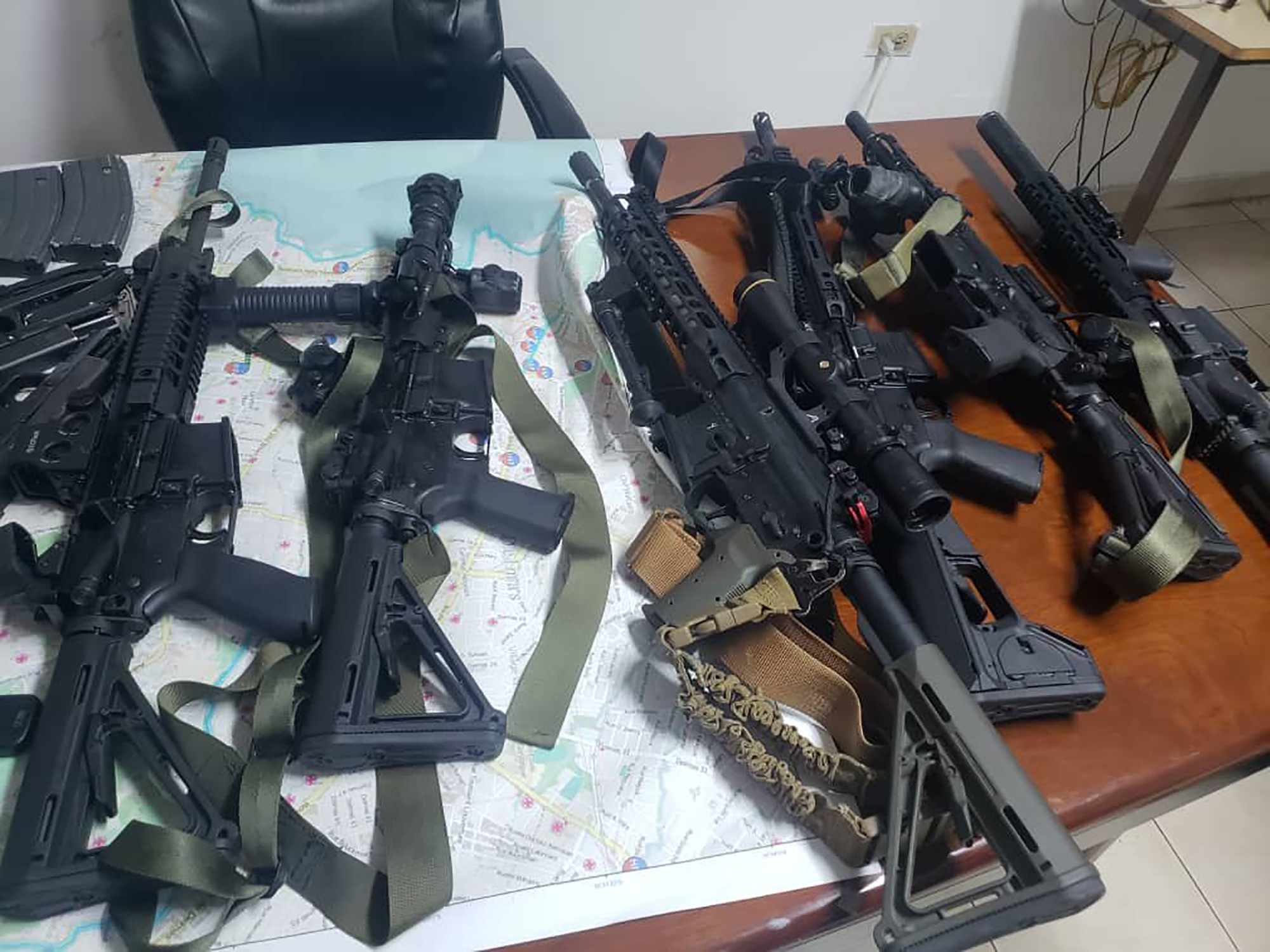
The Colombian official also said “Dimitri Hérard, head of general security at Haiti’s National Palace, flew to Colombia, Ecuador and Panama in the months before the assassination, and Colombian police are investigating whether he had any role in recruiting the mercenaries. In Haiti, prosecutors are seeking to interrogate Hérard over the assassination,” said the Associated Press.
Haitian National Police chief Charles said “Sanon was in contact with CTU Security and that the company recruited the suspects in the killing,” the newswire reported.
Chief Charles said, “after Moïse was killed, one suspect phoned Sanon, who got in touch with two people believed to be masterminds of the plot. He did not identify them or say if police know who they are.” The friend said Mr. Sanon “asked why the security team accompanying him to Haiti were all Colombians. Sanon was told Haitians couldn’t be trusted and that the system is corrupt, the associate said. He said Sanon called him from Haiti a few days before the assassination and said the Colombians had disappeared,” said AP.
The Associated Press also reported Mr. Sanon lived in Broward County in Florida, as well as in Hillsborough County on the Gulf Coast. The wire service said Mr. Sanon had been involved in a non-governmental organization, a radio station in Haiti and medical facilities in Haiti and the Dominican Republic. The wire service also described several failed business efforts over the past two decades.
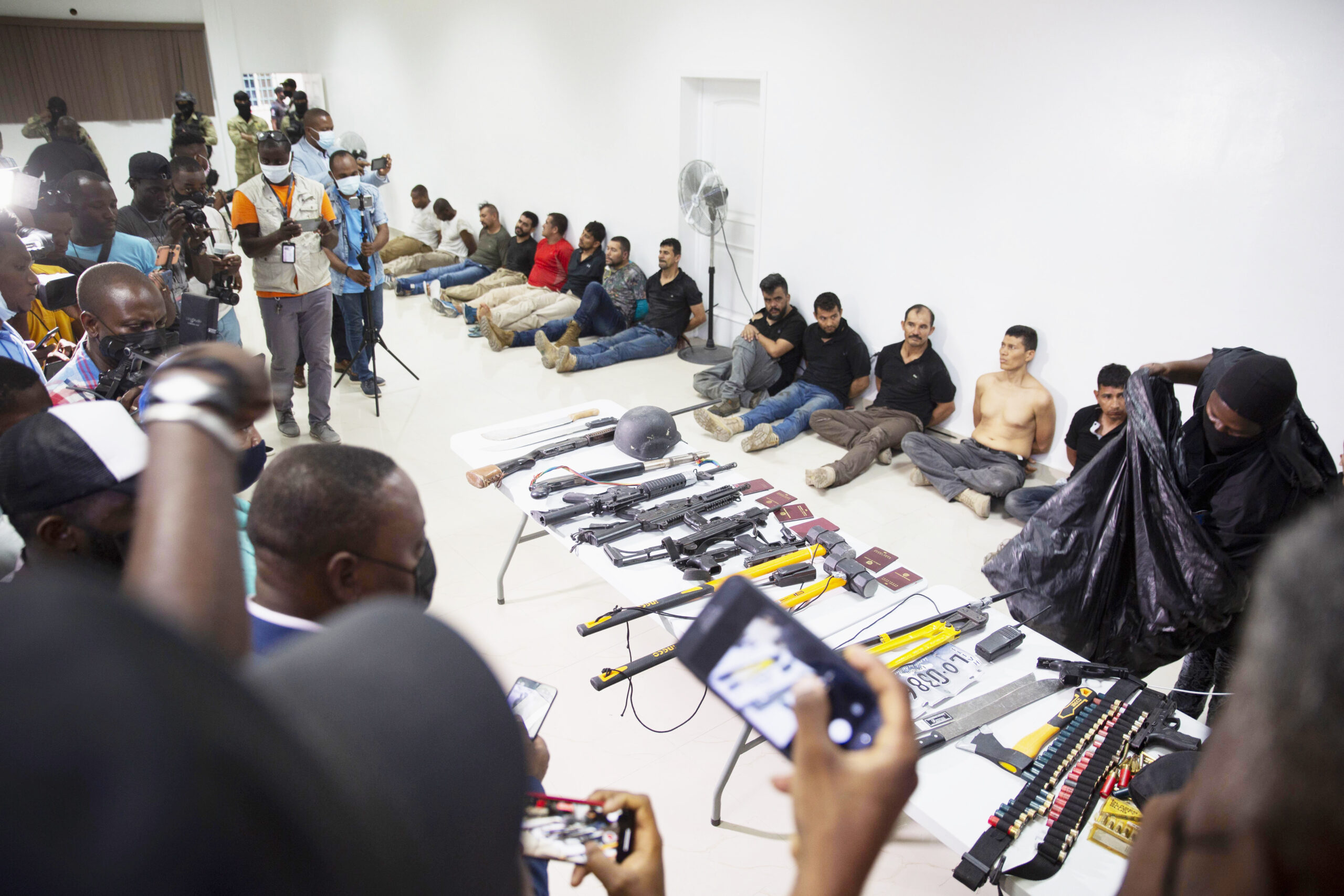
Brazen political killing raises fears, questions
Haitian authorities arrested suspects accused of killing President Moïse and seriously wounding his wife, who was flown to Miami for medical care. The accused group included 15 Columbian nationals and two Haitian Americans officials. Haitian security forces pursuing the alleged gunmen who carried out the brazen attack and arrested 11 of the men at the Taiwan embassy in Port-Au-Prince.
Investigative Judge Clément Noël told media the Haitian-Americans arrested, James Solages, 35, and Joseph Vincent, 55, said the attackers originally planned to arrest Mr. Moïse, not kill him. There were allegedly 28 gunmen, including 26 Colombians. Another eight suspects are being sought, said Haitian officials.
The U.S. has agreed to send senior FBI and Homeland Security officials to Haiti in response to a Haitian government request.
More U.S. mischief in Haiti?
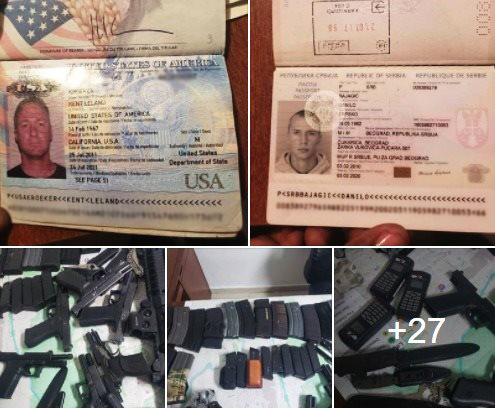
Nothing happens in Haiti without the approval of the United States, commented attorney Ezili Danto, during an afternoon livestream via the Free Haiti Movement page on Facebook. At the root of constant U.S. wrongdoing in Haiti is longtime opposition to the Black Republic which took her freedom and abolished slavery, Haiti’s strategic location and value as the U.S. doesn’t want any alliance with Cuba and friendship with Venezuela that could support Russia influence in her backyard, theft of Haiti’s natural resources, including the rare mineral iridium and gold, and exploitation of Haiti’s people, Ms. Danto explained.
Speaking back and forth in English and Haitian Kreyol, she pointed the finger at America citing U.S. control of Haitian politicians through Drug Enforcement Agency knowledge of drug dealing and corruption, use of wealthy Haitian oligarchs as proxies and fostering policies in which Haitians are traumatized and retraumatized. Recordings the night of the murder captured voices in English calling on presidential security to stand down, saying the DEA was conducting an operation.
The U.S. is scared that if Haiti somehow had control of her land, Haiti would hurt the U.S., but that’s paranoia, said Ms. Danto. “The only thing we would hurt are your profit over people values. We don’t want to be Russians, we’re not Chinese, we just want to Haitian,” she said. “We want to become the best that we can become. All we want is you out of our country and allow us to be what we are, peaceful and loving.” Haitians want decent payments for their resources, no more foul vaccines that foster cancer and self-determination, said the attorney.
“Right now we don’t need elections, we have not healed,” Ms. Danto continued, rejecting calls for voting in September. “Let us have our national dialogue. What’s it’s going to hurt you if we talk for two years?” she asked.
Those running for office are from the same cloth as Mr. Moïse, she added.
As the predators, elites and aspiring presidential candidates fight it out over the next two months, Haitians should focus on healing, strengthening their families, and embracing their history and culture, Ms. Danto said.
She laments how her country remains rife with charities posing as friends, the sexual abuse of Haitian children, and the influence of manipulative enemies, including the U.S., France, Canada, Germany, Brazil, the Organization of American States and the United Nations.
While she blamed the late president for a reign of terror that slaughtered and displaced thousands of Haitians, and for arming gangs as a kind of personal army—which she accused other political entities and businessmen of doing—Ms. Danto didn’t desire Mr. Moïse’s death. “We wanted him to come to court and answer for all these (Haitian) deaths,” she said.
She sees former President Michel Martelly, whose protégé was Jovenel Moïse, and others jockeying for a presidential election. She considers all of them corrupt, “lacking a moral compass and unfit to lead.”
The hit squad invaded the 53-year-old president’s personal residence in the affluent Petion-Ville hillside suburb of Port-Au-Prince. The “highly professional” killing occurred while a first-daughter was in the home but escaped unharmed.
Prime Minister Claude Joseph declared a state of siege across the country and 15-days of national mourning. Haitians lined up outside the American embassy in Port-Au-Prince seeking to escape a nation rocked by violence before the political killing.
The Dominican Republic closed its borders with Haiti, while the U.S. embassy ordered its staff to hunker in place.
Mr. Joseph promised presidential and parliamentary elections would proceed in September, but a contentious constitutional referendum is also slated the same day as the voting.
“Haiti has a lot of moving parts,” said Yusef Makhandal, an attorney and Haiti representative for the Nation of Islam. “We should do what is based on ‘life-stake, not political stake,’ and decisions should be made to find ways to avoid the bloodshed and avoid more violence,” Mr. Makhandal told The Final Call. Nation of Islam Minister Louis Farrakhan’s desire is fostering “unity as the path to peace in Haiti” and avoiding the bloodshed and gang violence, said Mr. Makhandal.
Many Haitians and Haitian Americans did not agree with Mr. Moïse being in power. But the tragedy runs deeper than politics.
“Regardless of whatever differences and political issues or concerns, our lives are precious,” said Patrick Muhammad, who oversees the Seventh Region of the Nation of Islam, which includes Haiti. He is based in Miami and is of Haitian descent.
Similar sentiments about the killing were shared during a July 8 news conference held in Miami’s Little Haiti. It was organized by U.S. Rep. Frederica Wilson, a Florida Democrat whose district includes the neighborhood.
Florida state Rep. Marie Woodson was also present and echoed the feelings of many Haitians. “No matter what [President Moïse’s] ideologies were, no matter what his principles, his leadership style, no one deserves to be killed,” she said.
“This is such a sad time in the history of our beloved Haiti,” Rep. Wilson said. “Who would have predicted such a heinous act? Yes, there’s violence, kidnapping, food insecurity and there’s corruption. But the murder of a president is beyond belief.” Ms. Wilson called on President Biden to assist Haiti.
Back on the island, Ms. Bastien said many of her family members are staying indoors.
“Obviously there is a constitutional crisis, because we know that before President Jovenel Moïse was assassinated, he nominated a new prime minister. But because he has been governing by a decree since January 2020, the prime minister has not been ratified,” she said. “The constitutional crisis needs to be looked at. A decision needs to be made about who’s going to be governing pending stabilizing the country for future elections.”
Patrick Muhammad said the solution is in unity. “I believe wholeheartedly that the enemy is (in Haiti), but we do know it’s just a matter of time for it to be known,” he said. “It’s just that we as a people and our brothers and sisters in Haiti and elsewhere have to realize who the open enemy is. The Honorable Minister Louis Farrakhan has taught us, when we unite, we will be able to see and not have to worry about the enemy. That’s what we have to do.”
The Moïse regime came to power through a U.S.-UN supported election in 2015 that was widely denounced as a sham “electoral coup” and delayed his taking power for a year.
The dispute was the steppingstone to the current constitutional crisis.
Opposition leaders, civic groups and international activists earlier this year demanded Mr. Moïse relinquish power, arguing his five-year term ended February 2021.
Tens of thousands of Haitians took to the streets. In response, President Moïse deployed security forces to violently quell the protests with bullets, beatings, tear gas, and persecution.
His government failed to hold scheduled parliamentary elections in October 2019. Today Haiti is absent a functional Parliament with only 10 of 30 Senate seats filled.
“I think we can say with some confidence… this is part of a general dismantling of democracy in Haiti,” said Brian Concannon, executive director of Project Blueprint, an advocacy organization that calls for a human rights-based U.S. foreign policy.
Dismantling democracy under Mr. Moïse was supported by the U.S. and other international players and was intentional, he said. A weak Haiti remains a playground for the U.S. and control of the economy allows corporations, non-governmental organizations and Haiti’s elite to profit and stay in power.
Some believe Mr. Moïse was entangled in a number of conflicts with many enemies. Some speculate his killing may be tied to falling out with wealthy oligarchs over changing policies that impacted their stranglehold on Haiti’s economy.
Between a faltering economy, gang fighting, grinding poverty and political uncertainty, the Haitian masses grew fed up as well.
“The tension was exacerbated to the point there’s been a lot of protests on the street organized by the elites on one end, and some fringe groups as well,” explained Mr. Makhandal, who is also of Haitian descent.
Untapped potential, old problems and old enemies
Haiti is a nation where many largely depend on its U.S.-based diaspora, which sends home more than $3 billion in remittances annually. The transactions make up one-third of Haiti’s gross domestic product.
Haiti, only 10,714 square miles with 11 million people, has untapped resources of natural oil and gas, gold, bauxite, and copper. Gold deposits are estimated to be worth $20 billion to $100 billion. Haiti’s small mining industry exports bauxite, copper, calcium carbonate, gold, and marble making about $13 million annually.
The U.S. exploitative relationship with Haiti continued with Mr. Moïse’s Tet Kale (THK) Party. “The overriding objective of the United States is to support the THK regime itself,” argued Seth Donnelly, author of “The Lie of Global Prosperity” and activist with the Haiti Action Network.
The regime is characterized by rampant corruption, looting of public funds, opening Haiti wider to plunder by foreign companies, and waging war on the poor, he said.
Mr. Donnelly believes “Moïse became a liability,” by alienating powerful forces within Haiti and the U.S. government. “The U.S. under both Trump and Biden had been giving him steadfast support, but he was losing control, increasingly unable to govern,” Mr. Donnelly argued.
Observers believe Washington’s back peddling, coupled with growing U.S. congressional opposition was a strong enough signal to Mr. Moïse’s many adversaries that he was out.
The Black Alliance for Peace expressed dismay over the assassination and rejects outsiders again meddling in Haiti. “It’s really about making sure at this point there’s no intervention, particularly the Western world—the U.S., UN, OAS (Organization of American States) intervention,” said Netfa Freeman of the alliance.
Any solution not Haitian-based must be rejected, he stressed, pointing out past puppet leaders supported by these entities were eliminated when their usefulness expired. These powers can’t be trusted to do anything just or principled, Mr. Freeman said.
“When people say Haiti is the poorest country in the Western Hemisphere, they fail to understand it is the Pan-European colonial powers that have kept Haiti with its hands tied behind its back,” said Ajamu Baraka, national organizer for the alliance. “We say time out on White Western powers causing destruction in the global South,” he said.
Between Mossad operating in Haiti and U.S. surveillance capacity, Atty. Danto does not believe a caravan of heavily armed cars could careen toward the president’s residence unseen. “There is nothing that they are saying that we are believing,” she said.
And, she asked, where was the international condemnation of Mr. Moïse’s gangs terrorizing Haiti for months? “We need no more help from the U.S.,” Ms. Danto said.
If the talk of U.S. involvement seems farfetched consider a 2019 plot that involved proven mercenaries, including Americans, and a plot to electronically transfer $80 million from the Haitian central bank into the direct control of President Moïse. The men, paid $10,000 each and promised $20,000 on completion of the job, arrived at the Port-Au-Prince Airport via private jet carrying an unregistered “stockpile of semiautomatic rifles, handguns, Kevlar bulletproof vests, and knives.
A trio of politically connected Haitians greeted the Americans when their plane landed around 5 a.m. An aide to embattled Haitian President Jovenel Moïse and two other regime-friendly Haitians whisked them through the country’s biggest airport, avoiding customs and immigration agents, who had not yet reported for work,” reported the Intercept, an investigative news website.
The plan went haywire when the presidential aide was rebuffed at the bank, police were called, a standoff ensued before the mercenaries surrendered. “Within three days … (the) team would be released and sent back to the U.S., having somehow managed to escape criminal charges in Haiti,” the Intercept noted. The U.S. State Dept. intervened on behalf of the hired guns, who apparently faced no U.S. charges.
The Intercept also reported March, 2019 that “an investigation found that (an oil payment) fund’s nearly $2 billion had been largely misappropriated, embezzled, and stolen, primarily under Haitian President Michel Martelly’s leadership between 2011 and 2016. Moïse came to power in 2017, after the Port-au-Prince district attorney accused him of money laundering.”
Ms. Danto doesn’t believe Haiti police forces, rife with corruption and officers often also part of political gangs, caught professional hitmen in such short time. “This is absolute theatre,” said Ms. Danto. She also blames the Obama administration for meddling that helped bring Haiti to this crisis point.
Other things that intrigue her: a social media-released recording of the first lady saying Colombians didn’t kill her husband, but not saying who did, White security personnel in the president’s home who weren’t on duty, where was the head of presidential security and what about Colombia’s role as a client state willing to do U.S. bidding? Colombians, she noted, have been called into the country to help with a different security problem and drugs come to Haiti from Colombia. Some of these people might not be innocent but they may not have killed the president, said Ms. Danto.
“This is the CIA working,” she said.
But, she continued, there were plenty of oligarchs unhappy with Mr. Moïse, some personal vendettas and they all have armed gangs who do their dirty work, which brings more suffering to ordinary Haitians. Israeli-made guns are provided to the gangs through operations by Mossad, the Israeli intelligence service, she said.
According to The Borgen Project, an organization dedicated to fighting poverty, more than 20 percent of Haitians live in extreme poverty, making less than $1.25 per day. More than 50 percent live on less than $2 a day. The top 20 percent hold 64 percent of the country’s wealth, and 30 percent of the population is considered food insecure.
Patrick Muhammad said countries that have long dabbled in Haiti’s economy and taken advantage of natural resources cannot be ruled out in this latest tragedy to strike the island. Mr. Muhammad recalled words shared by Minister Farrakhan with Mr. Makhandal in 2011, after returning from a trip to Haiti.
“He said, all the enemies of our people are in Haiti,” Mr. Muhammad said.












